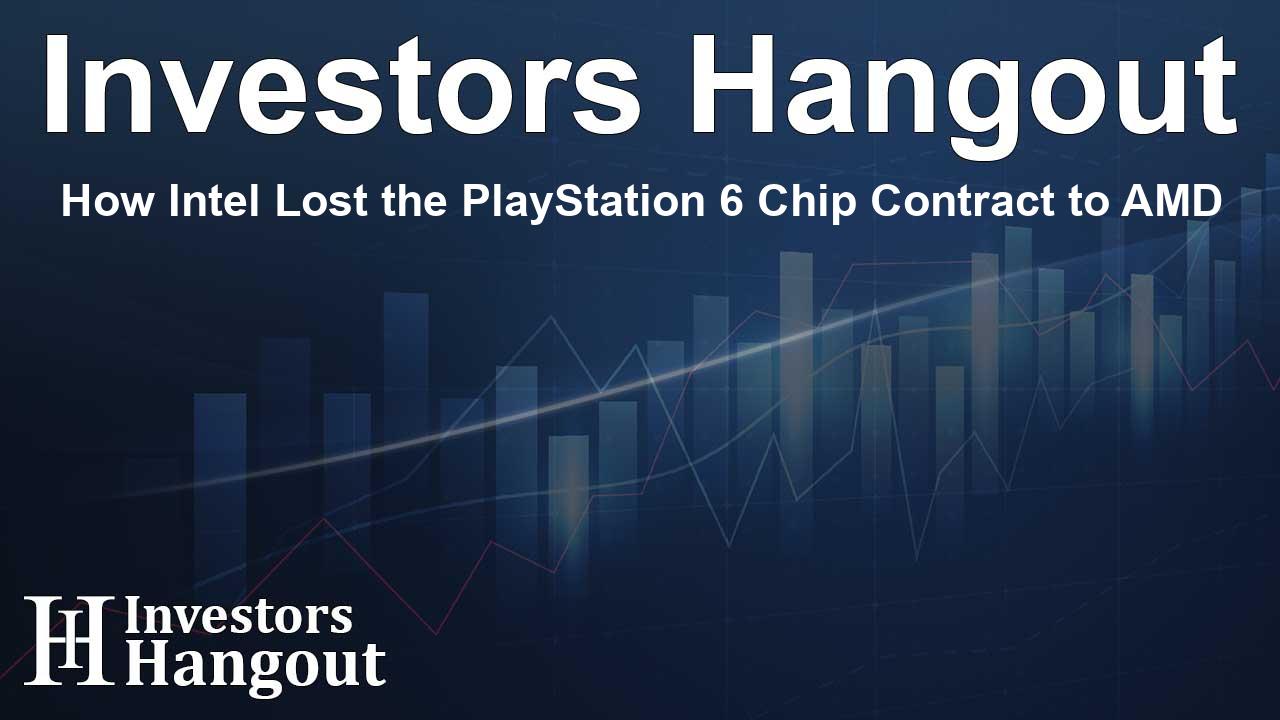How Intel Lost the PlayStation 6 Chip Contract to AMD

Intel's Narrow Miss with the PlayStation 6 Deal
In an unexpected twist in the tech world, Intel Corp (NASDAQ: INTC) recently missed out on a lucrative opportunity to collaborate with Sony Group Corp on the PlayStation 6 chip. This significant missed partnership has been reported as Intel losing to Advanced Micro Devices (NASDAQ: AMD), a move that could have changed the landscape for both companies.
Understanding the Reasons Behind Intel's Loss
According to sources familiar with the negotiations, Intel's bid was deemed uncompetitive primarily due to concerns regarding backward compatibility. When companies like Sony are looking at partnerships for their next-generation consoles, backward compatibility is a critical factor that can influence overall costs and development resources. With AMD already providing the chip for the PlayStation 5, they presented a more integrated solution that Japanese tech giant Sony found favorable.
The Impact of Pricing on the Decision
It appears that Intel's downfall in securing the PlayStation 6 contract also stemmed from their inability to propose an attractive price point per chip while maintaining a suitable profit share. Executives at Sony felt that Intel’s pricing strategy did not align with their financial framework, thereby leading them to favor AMD instead. This trend emphasizes the importance of competitive pricing in technology contracts, especially in rapidly evolving sectors like gaming.
The Wider Market Context: PlayStation Sales and Optimization
Since its launch, the PlayStation 5 has achieved remarkable sales, exceeding 59 million units globally. This success has further heightened expectations for the upcoming PlayStation 6. Amid these milestones, Sony is also preparing to release an upgraded version of the PlayStation 5, known as the PlayStation 5 Pro, aiming to enhance their market offering right before the holiday season.
Recent Financial Highlights of Sony
In tandem, Sony announced a 2% growth in its fiscal first-quarter revenues, reporting $19.3 billion—surpassing analysts' forecasts. The growth in their Game & Network Services (G&NS) revenue, which rose by 12%, is a reassuring sign that the gaming division is prospering despite slight declines in console sales in other markets.
Intel's Strategic Reassessment and Future Steps
The implications of losing out on the PlayStation 6 chip deal for Intel are quite significant. Over the last year, the company's stock has plummeted by over 48%, partly due to their struggles to capitalize on advancements in artificial intelligence technology. This has prompted Intel to explore strategic options, including a focus on their autonomous driving segment with Mobileye Global Inc (NASDAQ: MBLY), which could prove to be a vital area for growth going forward.
Intel's Recent Developments
In recent news, Intel has secured two noteworthy accomplishments, such as receiving $1.91 billion in grants to establish a new chip manufacturing plant in Poland, and winning a contract worth $3.5 billion to provide semiconductors for military applications in the U.S. These developments may help to pivot Intel's direction amidst tough competition.
AMD's Rising Stock and Market Repositioning
Contrarily, AMD has seen a remarkable 49% rise in its stock over the past 12 months, fueled by successful market strategies that include leveraging the ongoing AI boom. This upward trajectory positions AMD in a strong competitive light against rivals like Nvidia Corp (NASDAQ: NVDA) while deepening its ties with industry leaders like Sony.
Price Movements in the Tech Sector
As of their latest trading day, Intel shares closed higher by 6.36%, reaching $20.91, reflecting a slight market recovery. In comparison, AMD's stock stood at $152.08, showcasing the growing investor confidence in AMD's strategic position within the semiconductor market.
Looking Ahead for Intel and AMD
The fallout from this bidding war illustrates how critical innovation, competitive pricing, and strategic partnerships are in the semiconductor industry. The future of Intel and AMD will likely hinge on how well both companies adapt to changing market demands and technological developments in the gaming space.
Frequently Asked Questions
What led to Intel missing the chip deal?
Intel's pricing strategy and backward compatibility concerns contributed to their failure to win the PlayStation 6 chip contract.
How successful has the PlayStation 5 been?
The PlayStation 5 has sold over 59 million units since its release, showcasing strong consumer demand.
What financial performance did Sony report recently?
Sony reported a 2% increase in fiscal first-quarter revenues to $19.3 billion, exceeding market estimates.
How has AMD's stock performed recently?
AMD's stock has surged by 49% in the last year, driven by its successful navigation of the AI market.
What actions is Intel considering for future growth?
Intel is exploring strategic options including enhancing its offerings in the autonomous driving sector via Mobileye Global Inc.
About Investors Hangout
Investors Hangout is a leading online stock forum for financial discussion and learning, offering a wide range of free tools and resources. It draws in traders of all levels, who exchange market knowledge, investigate trading tactics, and keep an eye on industry developments in real time. Featuring financial articles, stock message boards, quotes, charts, company profiles, and live news updates. Through cooperative learning and a wealth of informational resources, it helps users from novices creating their first portfolios to experts honing their techniques. Join Investors Hangout today: https://investorshangout.com/
Disclaimer: The content of this article is solely for general informational purposes only; it does not represent legal, financial, or investment advice. Investors Hangout does not offer financial advice; the author is not a licensed financial advisor. Consult a qualified advisor before making any financial or investment decisions based on this article. The author's interpretation of publicly available data shapes the opinions presented here; as a result, they should not be taken as advice to purchase, sell, or hold any securities mentioned or any other investments. The author does not guarantee the accuracy, completeness, or timeliness of any material, providing it "as is." Information and market conditions may change; past performance is not indicative of future outcomes. If any of the material offered here is inaccurate, please contact us for corrections.